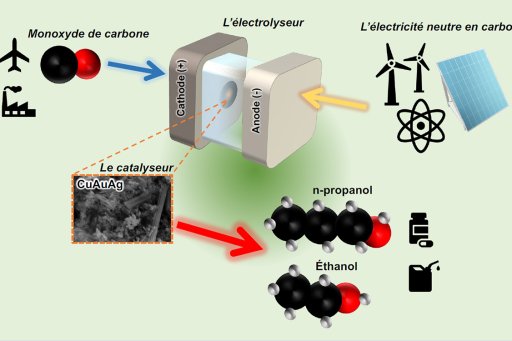Every two weeks, a current scientific topic is explored by a researcher from the Collège de France.
Astrocytes, long considered as simple neuronal support cells, play a fundamental role in brain function. Disrupted by environmental factors, notably exposure to pesticides, these cells could be implicated in neurodegenerative diseases such as autism or Alzheimer's.
Interview with Rodrigo Alvear Perez, biologist at the Collège de France.
Astrocytes, star-shaped cells, form the environment of neurons and ensure the proper functioning of the central nervous system. Far from being merely support structures, astrocytes play a multifaceted role. They nourish neurons, provide them with energy substrates, and help ensure the proper functioning of the blood-brain barrier, which regulates exchanges between the brain and the bloodstream. Astrocytes also regulate the biochemical balance required for neuronal activity. " Without astrocytes, the brain would be unable to function properly," explains Rodrigo Alvear Perez, " they play a key role in synaptic plasticity, i.e. the brain's ability to adapt and learn. "
Recent studies have revealed that astrocytes also participate in the repair of brain lesions by promoting the healing process. However, when this protective mechanism gets out of hand, it can lead to chronic inflammation and participate in the development of neurodegenerative pathologies. " A disturbance in astrocytes could have much more far-reaching consequences than has long been assumed ", adds the researcher. This is why biologists are increasingly interested in these cells in the study of diseases such as autism and Alzheimer's.
When the environment disrupts the brain
One of the most promising areas of research concerns the impact of pesticides on neurological diseases. " Over the past few years, we have observed that certain pesticides can contribute to the emergence ofneurodevelopmental disorders, such as autism, in the onset of ", explains the researcher. Indeed, epidemiological studies have shown a correlation between pesticide exposure and an increased incidence of autism in agricultural areas. But how do these substances influence brain development ?" We found morphological and metabolic changes in astrocytes, which then disrupt the functioning of associated neurons. "
This discovery opens up new avenues for understanding the environmental causes of autism, but also of other pathologies such as Alzheimer's. " We know that this disease is linked to the accumulation of toxic plaques, known as amyloids, but the role of astrocytes in this process is beginning to be better understood. If they are themselves affected by toxins or environmental factors, this could accelerate neuronal degeneration ", he adds. These are all avenues that could lead to better treatment of the pathologies and the people who suffer from them.
Prospects for medicine
Far from being limited to theory, this research could lead to concrete applications. The first step is to confirm our hypotheses," insists the researcher. If we can demonstrate that exposure to pesticides has a direct effect on astrocytes and promotes the development of neurological diseases, this could reinforce preventive measures and encourage the restriction of these substances in our environment. "
Furthermore, a better understanding of the role of astrocytes could enable the development of targeted treatments to reintroduce cerebral plasticity in adults after brain damage. " We are thinking about molecules capable of protecting or restoring astrocyte functions to prevent damage to neurons. " In Alzheimer's disease, innovative therapeutic strategies target the cellular mechanisms involved in the accumulation of toxic proteins.
But research also has its challenges. " Reproducibility of experiments is a fundamental issue," stresses Rodrigo Alvear Perez. " We need to ensure that each protocol is rigorously applied to obtain reliable results. " In addition, funding conditions sometimes remain difficult. " It is essential to continue to attract young researchers and support basic research ", he insists.
Far from being mere supportcells , astrocytes are central to brain function and the diseases that affect it. Deciphering their role could well revolutionize our approach to neurodegenerative and neurodevelopmental disorders. From the depths of the laboratory, these cells long neglected by science could well hold the secret to some of the most complex pathologies of our time. Their exploration promises a revolution in the prevention and treatment of hitherto elusive diseases.
*Rodrigo Alvear Perez is a research engineer with the Physiology and Physiopathology of the Gliovascular Unitteam at the Centre interdisciplinaire de recherche en biologie du Collège de France.










